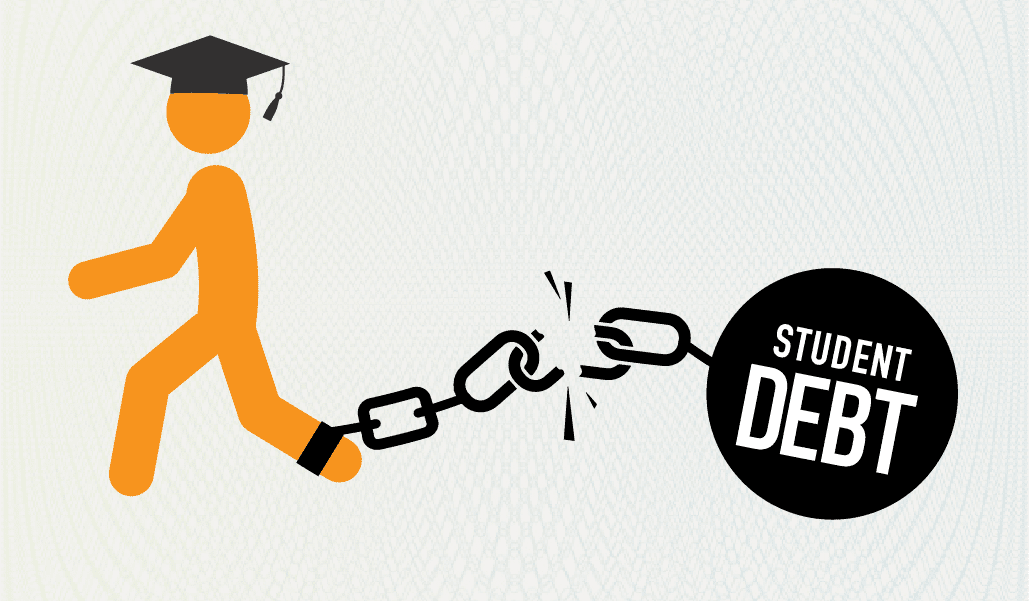A new poll by Upgraded Points shows how much people are willing to give up in order to be financially free, even though debt is a big problem for Americans. With an average debt of $21,800, the study of 1,000 people showed that people were ready to give up things they enjoyed in life, like trips, cars, and even pets, to get out from under their debt. The results show how deeply financial stress affects people and provide insight into the extraordinary steps many are willing to take to relieve the stress of debt and regain control of their finances.

42% of Americans Would Give Up Amazon For Life To Be Debt Free (PHOTO: RAPPLER)
What People Owe: A Quick Look at Their Debt
The weight of debt is heavy on Americans, with 44.5% saying that credit card debt is their biggest financial worry. Besides credit card debt, student loan debt (22.8%), auto loan debt (10.5%), home debt (10.4%), and medical debt (4.8%). The average amount of government student loan debt a user has is $37,338 and the average amount of private student loan debt is $54,921. Half of students still have loads over $20,000 twenty years after they started school. The financial stress is made worse by auto loans, which have an average monthly payment of $725 and loan terms of 68.6 months. At the same time, the average American home debt is $241,815 with $1,427 monthly payments. The total effect of these bills shows why people are so motivated to take big steps to ease their financial loads.
Things They Would Give Up
In a recent poll about what Americans would do to get out of debt, people gave surprising answers about what they might give up. A shocking 73% were ready to give up drinking for two years, and 70% were ready to give up travel for the same amount of time. Surprisingly, 56% of people stopped having sex for a year, 59% stopped using streaming services for two years, and 48% stopped working out for the same amount of time. Notably, 42% said they were ready to give up Amazon for good, and 38% said they were ready to give up social media for good. The poll also found that people with debts of more than $40,000 followed the same pattern. This shows how far people are willing to go to make ends meet. Even though these compromises might not lead to instant debt relief, the study shows that people are willing to make short-term changes to their lifestyles in exchange for long-term financial gain.
How very far they would stick it out
A recent poll looked into how far Americans are willing to go in terms of giving up things at work in order to get out of debt. More than a third said they would be happy to work every day for a year, and 36% said they would not take any paid time off for the next two years. There were differences between generations. For example, 27% of Gen Z, 31% of Millennials, 47% of Gen X, and 44% of Baby Boomers were ready to give up paid time off. Most of them (65%) were willing to get a second job to pay off their debt, and 24% were thinking about taking money out of their retirement funds. Half of the people who answered liked the idea of downsizing their homes as a way to deal with debt. This shows how far people are willing to go to get their finances in order.
How people deal with their debt
Even though many Americans worry about their debt, the ways they try to deal with it don’t always work to keep it under control in the long run. Worryingly, 21% of people who have credit card debt say they only make the minimum payment each month. This means that interest charges keep adding up, and the debt spiral gets worse. Even though 59% of people want to get out of debt (44% say it’s their biggest financial worry) and 22.8% say they are overwhelmed by student loans, they are not willing to ask for help. 87% of people say they would be willing to pay off their debt if they were given a check equal to their credit card amounts. This is an interesting paradox that shows how complicated debt management can be and how more proactive
Getting a handle on debt (without giving up Amazon)
Being in debt makes it hard for almost half of Americans to buy a home, which gets in the way of their dreams. But there is a way out if you know how to handle your money well. Tools like Dave Ramsey’s “Baby Steps” give you an organized way to get your finances in order and pay off your debts over time. Setting up a budget is another important step. It helps you see your income and costs, which can help you stop spending money you don’t need to and put money toward paying off your debt. People can find an online planning tool that works for them since there are so many to choose from. It might be hard to take the first step toward paying off debt, but as amounts go down, desire often rises. For people who are debt-free and financially independent, putting off paying off debt is a choice that they rarely regret. It gives them more financial freedom and helps them reach their personal goals.

















































